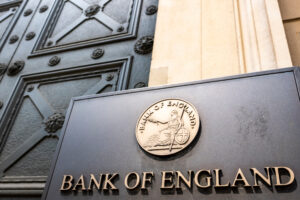Businesses are planning to moderate both price increases and pay rises over the next year, bolstering the case for the Bank of England to cut interest rates at its upcoming August meeting.
A June survey by the Bank revealed businesses expect to increase salaries by an average of 4 per cent over the next year, a slight decrease from 4.1 per cent in May. This suggests a softening in wage pressures, which have been a key factor in maintaining high inflation within the services sector.
The Bank’s monetary policy committee (MPC), which is responsible for setting interest rates, closely monitors this monthly survey. Rob Wood, chief UK economist at Pantheon Macroeconomics, stated that the findings will likely “give the MPC confidence to cut interest rates soon, as the survey signals that high interest rates continue to suppress wage and price inflation”.
Analysts at Citibank echoed this sentiment, noting that the figures “indicate gradual, if consistent, disinflationary progress”.
Financial markets are anticipating that the Bank will reduce its base interest rate on August 1, marking the first policy easing since March 2020. The current base rate stands at 5.25 per cent, the highest in 16 years, having risen from 0.1 per cent.
In May, services inflation, a key measure of domestic price dynamics, exceeded the Bank’s forecast at 5.7 per cent. Nonetheless, headline inflation fell to 2 per cent, aligning with the official target for the first time since July 2021.
The MPC’s last meeting in June indicated a lack of concern over services inflation surpassing projections, fuelling speculation among analysts that borrowing costs may be reduced next month. Investors are anticipating between two and three quarter-point rate cuts this year.
However, the latest survey also highlighted emerging inflationary pressures from businesses planning to increase their profit margins. Nearly 50 per cent of surveyed companies intend to lift margins over the next year, compared to 18.2 per cent expecting to reduce them. Wood commented that this could “keep consumer price inflation running higher than wage growth”.
Household finances, severely impacted by the cost of living crisis, are only now beginning to recover to 2022 levels. Inflation peaked at 11.1 per cent in October 2022, but average wages, which have been increasing at about 6 per cent, have outpaced prices over the past year.
Businesses now forecast inflation to average 2.8 per cent over the next year, slightly down from 2.9 per cent the previous month. They also expect prices to rise by 3.6 per cent over the 12 months to June, the lowest rate since August 2021, down from 3.8 per cent previously.
